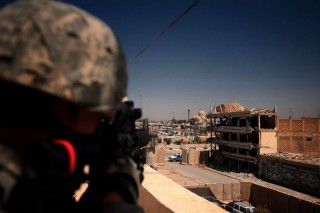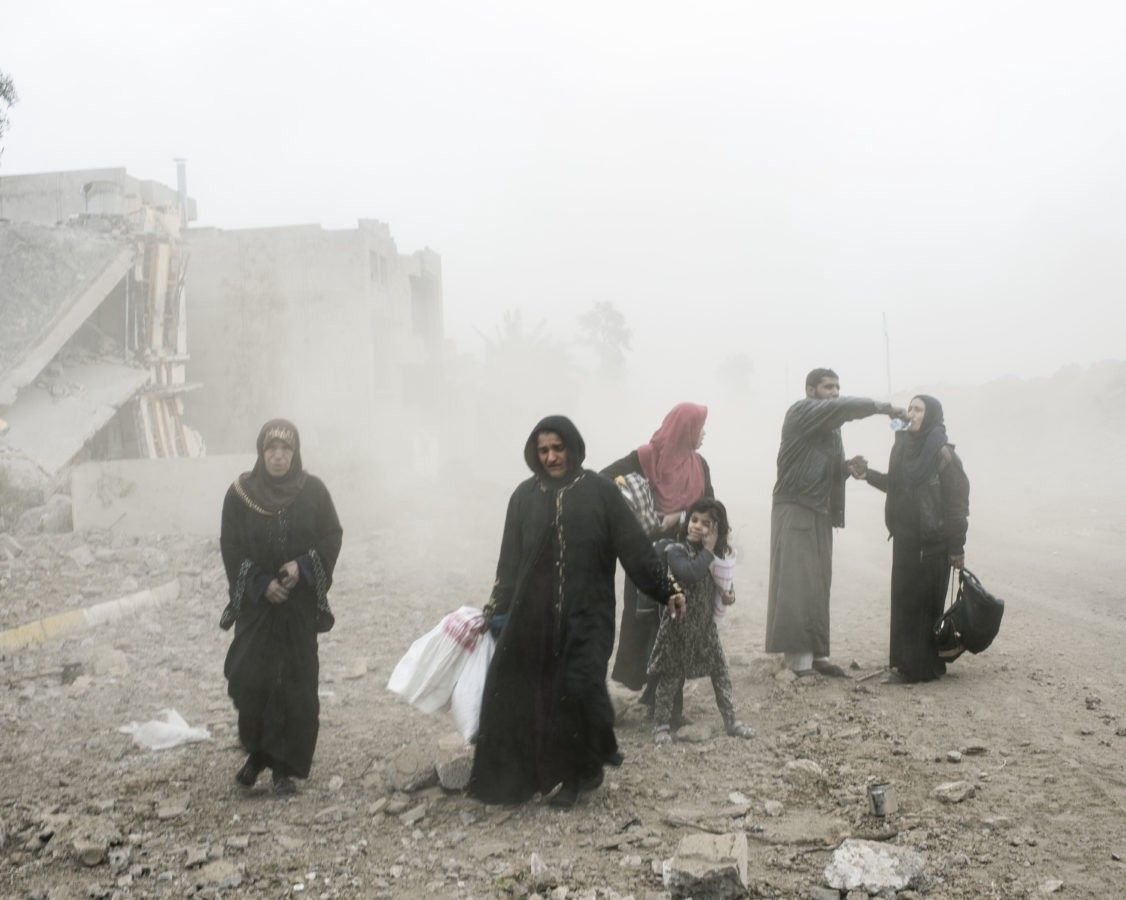ISIS has been routed from the Iraqi city of Mosul. Iraqi Prime Minister Haidar al-Abadi has declared that this signals “the end and the failure and the collapse” of ISIS.
But according to two Iraq War veterans writing in a paper published by the Small Wars Journal in April, the victory in Mosul will be short-lived.
Having anticipated the immediate success of the coalition military campaign three months ago, the authors also predicted that this:
“… will not resolve the deeper problem of Iraq’s dangerous fragmentation… The defeat of Islamic State on Iraq’s territory will only bring into clearer focus the stark reality that Iraq is sliding toward state failure.”
Pointing to failed state precedents like Libya, Yemen and Somalia, they forecast that the increasing proliferation and fragmentation of armed groups inside Iraq is accelerating the “dissolution of central state authority”, and “threatens to lead to open-ended conflict.”
The paper is co-authored by Buddhika B. Jayamaha, a veteran of the 82nd Airborne Division with deployments to Iraq; Lieutenant Colonel (ret.) Kevin Petit, who spent 24 years in the Infantry with multiple tours in Iraq and Afghanistan; and Professor Will Reno, a political scientist at Northwestern University.
They highlight three fundamental political factors driving Iraq toward state-failure, which the military campaign to defeat ISIS has done nothing to alleviate:
- The fragmentation of Iraq’s political system,
- The proliferation of armed groups, and
- The lack of central state coordination of relations with foreign actors
All these factors are amplifying sectarian divisions across the country, and compounding the risk that different groups will eventually seek military solutions to secure their perceived interests.
This paper focuses exclusively on internal political structures in Iraq and how the post-occupation environment has enabled a situation in which the most logical survival mechanisms for different communities is to mobilise on sectarian grounds within highly fragmented patronage networks.
These networks are consolidating in such a way as to consistently weaken the power of the central state, which also operates in a similar fashion.
When we factor in other compounding factors — such as Iraq’s oil production challenges and the intensifying impacts of climate change — the situation looks far more intractable.
In my exclusive essay for Middle East Eye, I explore recent peer-reviewed oil production forecasts suggesting that Iraqi oil production is likely to peak in around 2025. Simultaneously, Iraq is already suffering from water scarcity, which has had a devastating impact on domestic agriculture.

With chronically low oil prices, this puts Iraq in the difficult position that not only are state revenues haemorrhaging due to high production costs and squeezed profits; after a mere 10 years of potential production growth, Iraq is likely to experience a slow plateau and eventual decline in production.
At that point, the capacity of the central government to sustain territorial integrity while delivering public goods and services, is going to be even more strained than it is now — when we have calls for autonomy from the Kurdish Regional Government (KRG) as well as from some Sunni groups in West Iraq.
The forces pulling Iraq apart from within are also being exacerbated from outside. In an earlier investigation, I uncovered considerable evidence that the Trump administration was moving increasingly to accommodate the idea of a break-up of Iraq, primarily with a view to open up access to newly autonomous provinces rich in oil, gas and other resources.

Whereas previously, Western companies have experienced difficulties in accessing these regions due to the massive bureaucracy of the central government, a break-up along sectarian lines has long been seen as one way of bypassing this problem.
The main thing missing from the Small Wars Journal paper is an explicit acknowledgement that the massive intensification of sectarian violence has not just occurred after the occupation, but has escalated as a direct consequence of the US-led invasion and occupation of Iraq.
Instead, the blame is conveniently put on the corruption of an Iraqi governmental structure that was basically installed and massaged into existence by the US-led coalition.
An even bigger issue missing from the Small Wars analysis is the recognition that US military violence has consistently played a fundamental role in devastating civilian life to such an extent that it acts as a recruiting sergeant for violent extremists.
A new Amnesty International report accuses the Iraqi government and US-led coalition forces of having committed war crimes in the operations to expel ISIS from Mosul. Such criminal conduct in military operations has been endemic in Iraq.
.jpg)
Thus, the coming failure of the Iraqi state is precisely the outcome of a long continuous history of American and British military intervention in the country going back not just to 2003, nor even just to 1991, but even further to the early 20th century.
What we’re witnessing is the protracted breakdown of the regional geopolitical order that the US and Britain first began to establish from the late nineteenth to the early twentieth century, which they nurtured into a system of surrogate client-regimes.
This entire regional system is unravelling. Anglo-American military violence has been a prime trigger setting in motion the forces of instability. But climate change, water scarcity, and energy volatility are also undermining the viability of this system. Iraq’s slide toward state-failure is simply a part of this process.
But state-failure is not a foregone conclusion. Instead of rejecting Amnesty’s findings, as he has done, Prime Minister Abadi could accept them and seek to reign in the sectarian dynamics afflicting the Iraqi armed forces.
He could re-evaluate Iraq’s relationship with Iran to create a healthier and more productive alliance.
He could reach out concertedly to the Sunni populations of Iraq, especially those who have had their lives ravaged in Mosul by ISIS, Iraqi government forces, and US-led coalition bombs.
He could seek to enfranchise Iraq’s disparate ethnic communities and explore ways to ensure that Mosul is rebuilt, partly by tackling the governmental corruption that restrains the Iraqi budget, and partly by demanding that the US and its allies foot the bill for the monumental destruction they have contributed to.
As the Iraqi state mires itself deeper into failure, no one should forget the culpability of the US, Britain and their allies in accelerating the forces behind state-failure.










